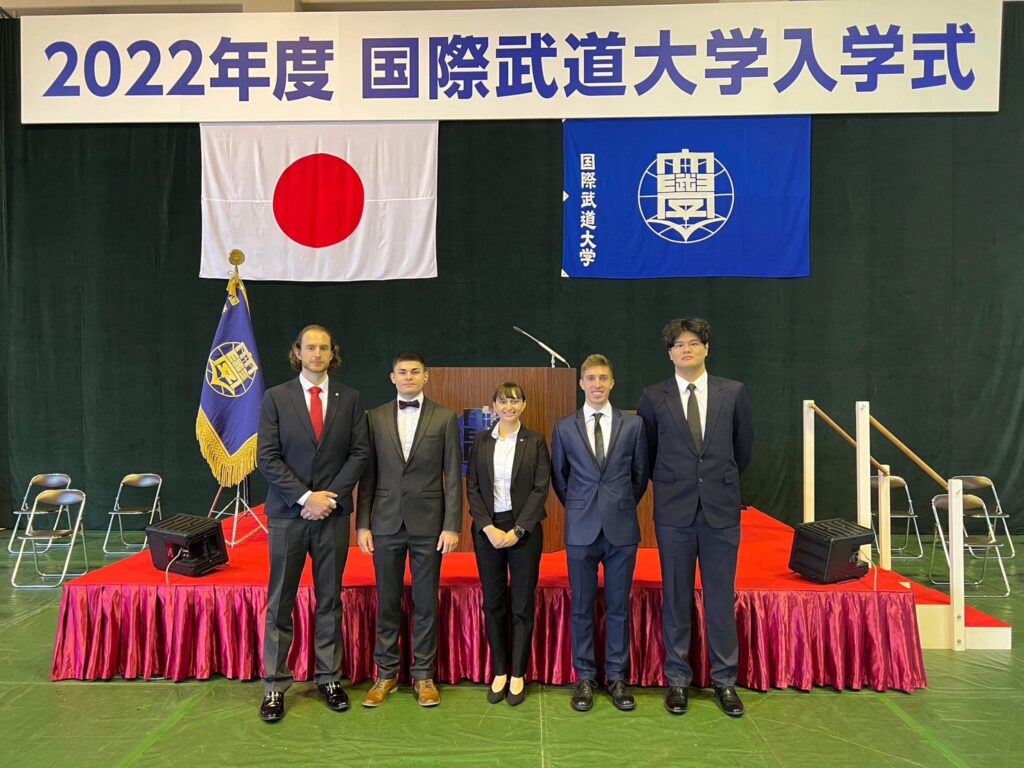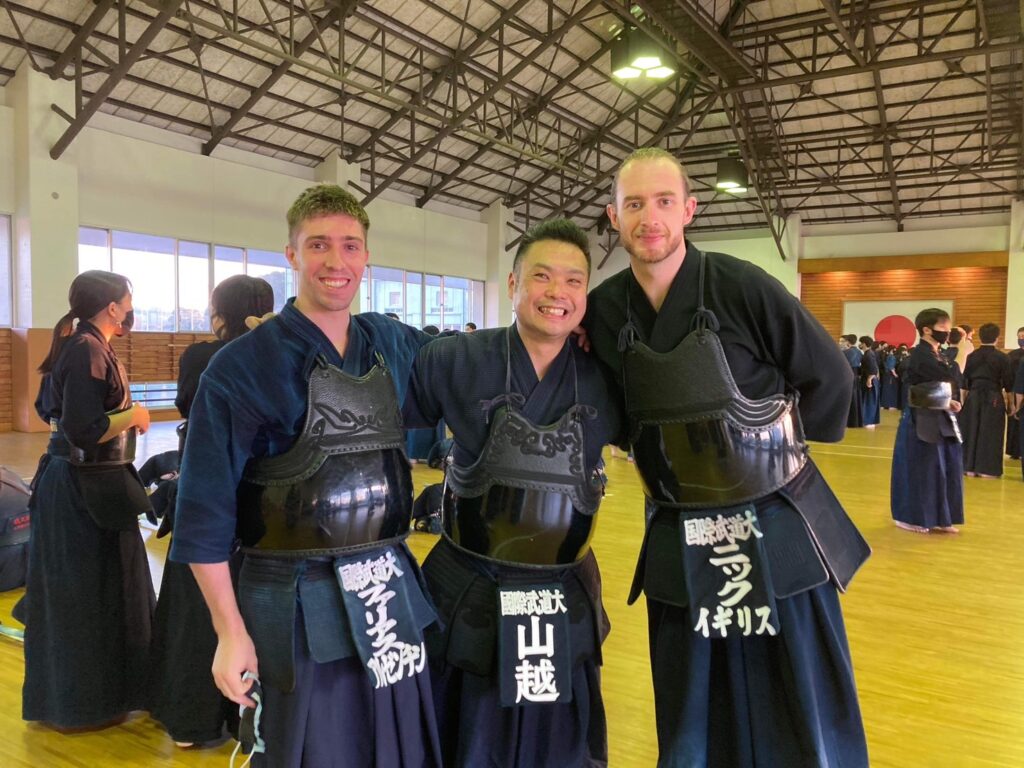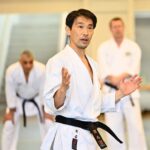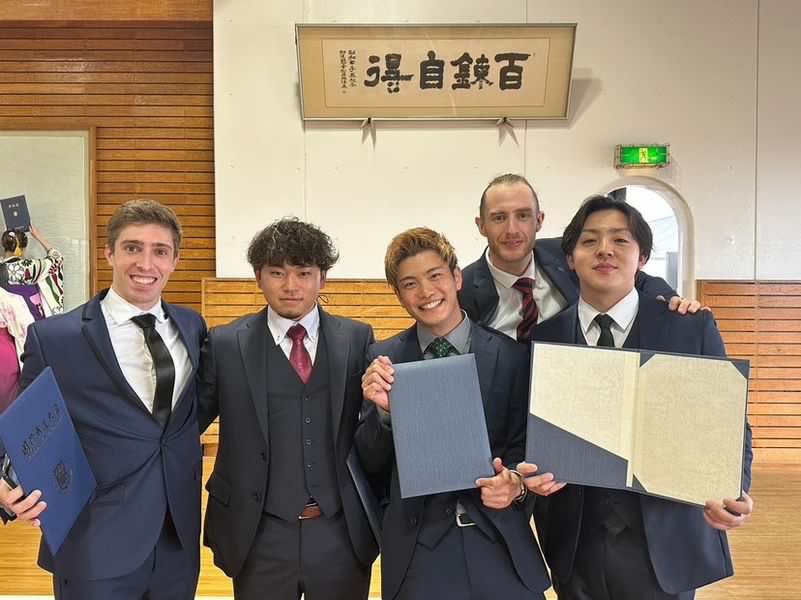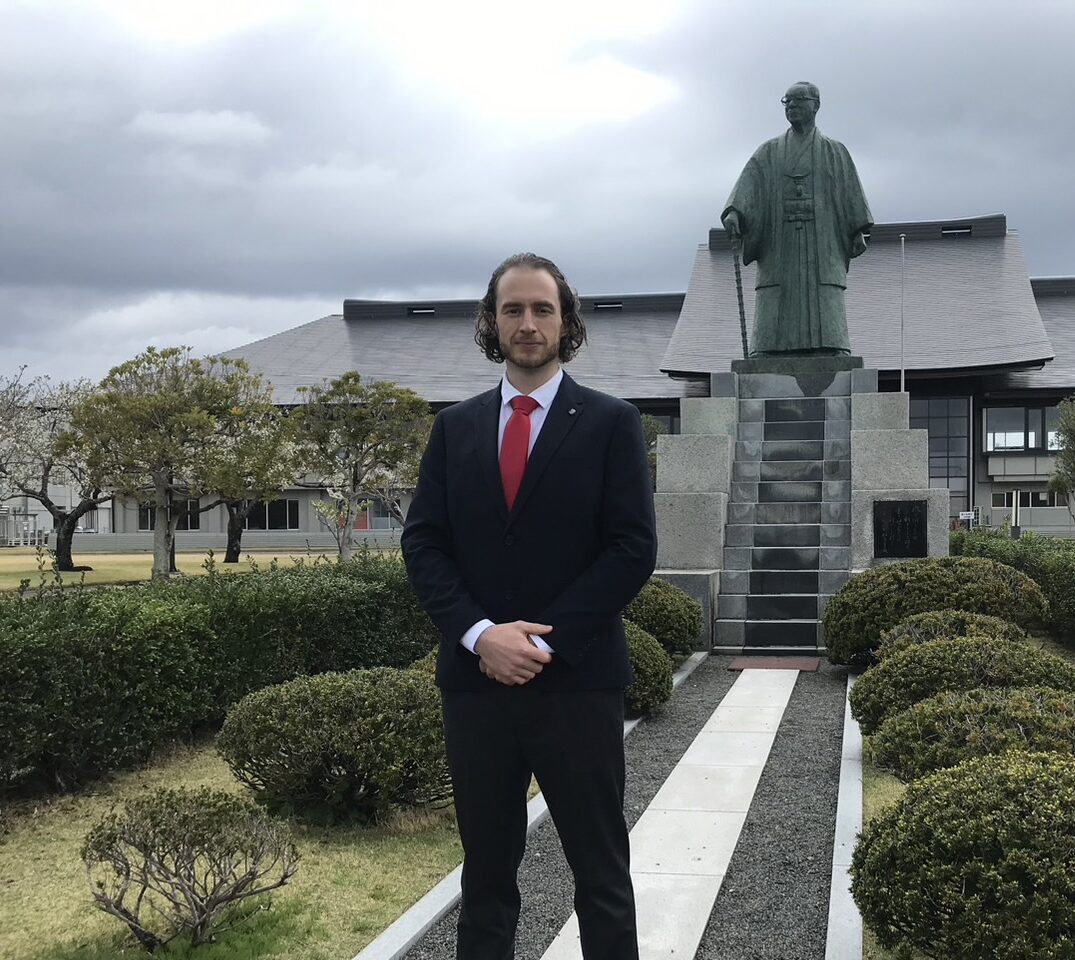
Introduction Of Graduates
VOLUME 02
Mr. Nick Richardson
<Profile>
Nationality:British
Major Budo:Kendo
I was practising and coaching in a Dojo that was 40 mins from my home. We would practise 3 times a week. Wednesday evenings was just coaching staff and senior students. Friday’s were for adults and juniors that were invited due to their level of competency. Finally, Sundays were for members of all ages. I would rotate between teaching the kids, juniors and adult classes but was in charge of the kids programme.
Originally, I was practising Aikido from the age of 7. My dojo had to close and so at the age of 15 my Aikido Instructor introduced me to an Iaido Instructor. The dojo was performing a Kendo demonstration in my town and so I went to support. One member went sick and so there was only one other person to do the demonstration. My teacher asked me to help. I put on a bogu, stood in one place, shouted a lot and let the other guy hit me. I enjoyed this experience so much that from this point I wanted to practise Kendo.
Before coming to the IBU I was Training in Kendo, Aikido, Kyokushin Karate and Tai-Qi. I began my preparation for IBU first with “Souji” after being influenced by a documentary about Eiga Sensei. On a Wednesday I was able to get to the dojo early and so I would take a cloth and bucket and wash the entire floor on my own to build the strength in my legs, hips and shoulders. I was also training in my own time at the gym. I was incorporating kendo exercises and fitness exercises to build my strength and stamina. I could already speak some Japanese but to prepare I was taking weekly Japanese lessons.
10 years before (2012) I took part in a one year Aikido Instructors course. A very intense one year of training. After completing the course I was lucky to practise Aikido and teach in many countries. People would often compliment my basics (kihon) and other instructors would often say it was obvious I had trained in Japan. This gave me a lot of confidence in my basics and myself.
I felt I lacked this confidence in my Kendo and so I wanted to find a way to do the same with my Kendo. In 2015 I took part in the Budo Seminar at the Kenshu Centre in Katsuura. There I met the Kendo Bekkasei as well as one Judo Bekkasei. They told me all about the course and from that moment I knew that this was what I was looking for.
I had a great experience. The University is an inspiring place to be. Yes, the training is tough, the schedule is busy. It can be difficult to communicate at first, especially if you have little Japanese ability. However, over the course of the year this changed. The training doesn’t get easier, but you get fitter, stronger and I felt definite improvements in my Kendo. The consistency of the Japanese lessons and the fact that you are surrounded by Japanese meant that even the people in my year that came with zero Japanese were having conversations in the language by the end of the year. I felt incredibly proud to not only be a part of the Bekka program but also a member of the University. Having so much opportunity to train with so many high grade instructors, try many different budo and take part in local events and festivals the year flew by. I would, with no hesitation, recommend this course for those wanting to experience real budo in Japan.
My 5 points to guide your preparation.
Money: It is a lot easier to earn money in your home country before you come, so try to work and save as much money as you can. This will allow you to come and focus on the course and your experience instead of having to stress about finances.
Language: Try to learn a little at least before you come. As soon as you land in Japan people will be speaking to you in Japanese. So, at least be able to understanding greetings and maybe some key phrases like self introductions and how to ask for things politely. Also how to write your name in Japanese.
Culture: Watch as many YouTube videos as you can or read books to learn about Japanese culture and behaviour. This will help prevent you from making any embarrassing mistakes.
Training: Make sure you prepare by keeping up your training before you come, to get as fit as you can. Realise that when you arrive the teachers will push your limits. It will be hard, but you are here to practise, so practise!
Open Mind: The key is to come with an open mind. Forget what you think you know and just absorb as much as you can. Don’t just do what you have already been doing. Watch the teachers and students and try to copy.
There is still a large amount of information that doesn’t get to the UK. Many people constantly question the teachings and as to what is actually being taught in Japan. I would like to be a feed of Information to the UK. To try and give consistency to the training and ensure good basics and correct form are being used. This hopefully ensuring the spread of good Japanese kendo throughout the UK. I hope this will also help people have confidence in their own kendo to travel to Japan and practise with the teachers here and enjoy the opportunities that I have been very lucky to have experienced.
I am currently working here in Katsuura. I also plan to teach English at IBU. I hope to support the Bekka program and help it grow. To continue to try and help the local Kendo by taking part in the children’s programme at the Kenshu centre. I also plan to open my own Aikido dojo this year.
Kendo has so many levels in which it can help the practitioner and has so many levels in which it can be enjoyed. Some are focused mainly on Competition and winning, however some are more focused on the philosophy that comes with Kendo practise. Ijima Sensei has told me on several occasions that Kendo must have a balance of both physical and philosophical and so for me this is what I am trying to pursue as well as pass on. For me, kendo has given me so much. Aside from the enjoyment of doing something that I enjoy, it has given me a passion but also a way to reflect on myself. From the practise with others it allows me to see my faults as well as my merits. This gives me an opportunity to work on things that not only can help with my kendo but can be related and reflected in my character, my work and my interaction with others.
In a busy world of social media, TV and fast news more and more people want things to come so quickly, kendo is the complete opposite to all of this. It gives people a chance to focus on just one thing. A moment to focus their mind and energy with no external interference. It is not something that can be gained quickly, instead it shows people that time, dedication and perseverance are key to gaining a higher level of understanding and skill in something they want to do. I feel this kind of experience is becoming rarer and rarer and so, even though it is not same as the reason for which the origins of kendo were created, now in this day and age Budo and Kendo are exactly what is needed.
The University campus is an awesome place to be. As soon as you arrive and see Matsumae Sensei statue outside the traditional shaped dojo building, you get goosebumps. The dojo and training facilities are awesome. It’s the nicest dojo I have trained in. The campus is not so big which makes it so much more accessible and easier to get to all your lessons. The canteen serves cheap but tasty food and is a great place to catch up with friends. The library is stacked with books not just in Japanese but in English as well as various other languages. All the staff are very kind and very helpful. The international office gave me so much support and helped me out so much through my time as Bekkasei and where always there to cheer me on. I have met a lot of OB (ex-graduates) and I love how proud people are to have been at the University and I truly feel the same.
The Bekka course is such a great opportunity, that if you have the chance, it should not be passed up.

